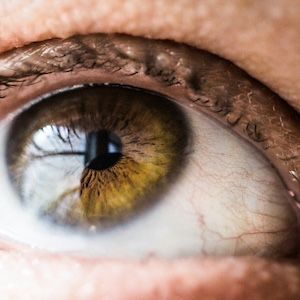News
Article
TNF-Inhibitor Biosimilars Prove Effective, Safe in Pediatric Non-infectious Uveitis
Author(s):
Real-life data reveal the effectiveness of TNF-inhibitor biosimilars in minimizing ocular flares and preserving visual acuity in pediatric patients with uveitis.
Credit: Vanessa Bumbeers/Unsplash

A new study using real-life data from an international medical registry has shown tumor necrosis factor (TNF) inhibitor biosimilars are both effective and safe for the treatment of pediatric patients with non-infectious uveitis.1
Data collected from the analysis showed TNF inhibitors biosimilars are effective at significantly reducing the number of ocular uveitis relapses, preserving visual acuity, allowing a significant glucocorticoid-sparing effect, and preventing structural ocular complications.
“To the best of our knowledge, this study cohort represents the largest sample of pediatric patients with non-infectious uveitis treated with TNF inhibitors biosimilars, thus contributing to the straightening of current evidence of current evidence on this topic,” wrote the investigative team, led by Claudia Fabiani, MD, PhD, department of medicine in the department of surgery and neurosciences at Ophthalmology Unit, ERN Rita Center.
First-line approaches to the rare sight-threatening condition involve the administration of local and/or systemic glucocorticoids, but pediatric patients require careful consideration of ocular complications and side effects related to their use.2 Biologic treatment is an emerging early therapeutic approach, being supported by increasing evidence of effective uveitis control and vision stability, preventing the occurrence of complications.
The introduction of biosimilars to the market has aided higher accessibility through sustainable costs and has steadily increased the amount of data on their effectiveness and safety.3 However, there are barriers to biosimilar use, owing to concerns about the physician characteristics of the product and distribution capability, particularly in pediatric patients. Fabiani and colleagues aimed to describe and analyze the efficacy and safety of TNF inhibitor biosimilars among a multi-center cohort with pediatric non-infectious uveitis.1
The registry-based observational multicenter ambidirectional cohort study obtained the cohort from the International Autoinflammatory Disease Alliance (AIDA) Registry dedicated to uveitis and Behçet's disease. Enrolled patients experienced an onset of non-infectious uveitis below 18 years of age and started treatment with biosimilar drugs in pediatric age. Fabiani and the investigative team assessed patient response to biosimilar molecules in terms of frequency of relapses, risk for developing ocular flares, best-corrected visual acuity (BCVA) outcomes, glucocorticoids-sparing effect, drug survival, frequency of ocular complications, and adverse drug events.
A total of 47 patients, corresponding to 22 male patients and 25 female patients, with 77 affected eyes with non-infectious uveitis were enrolled in the study. Among 42 patients (69 eyes), biosimilars were started without switching from the corresponding originators. Biosimilars used in these patients included adalimumab (89.4%), etanercept (5.3%), and infliximab (5.3%).
The analysis identified the rates of ocular flares in the 12 months preceding the start of biosimilars as 282.14 flares/100 patients/year and 52.34 flares/100 patients/year during biosimilar treatment. Altogether, the relative risk of developing ocular flares in the pre-biosimilar period compared to the biosimilar period was 4.49 (95% CI, 3.38 - 5.98; P = .004). The number needed to treat ocular flares was 3.53.
Further response outcome data showed the median BCVA remained the same through baseline and at 12 months of biosimilar treatment (P = .92), and a significant glucocorticoid-sparing effect starting from the 6-month follow-up assessment (P = .002). According to the data, the estimated drug retention rate was 92.7%, 83.3%, and 70.8% at the 12-, 24-, and 36-month follow-up periods.
Safety findings revealed the risk ratio of new ocular complications without biosimilar treatment was 7.1 (95% CI, 3.4 - 14.9; P = .000). Throughout the TNF biosimilar treatment, only three minor adverse events were reported. Fabiani and colleagues noted this did not represent a reason to prefer originators in place of TNF biosimilars.
“Altogether, these findings support the utility of TNF biosimilars in the pediatric setting, reducing the frequency of inflammatory ocular insults and preserving the visual function in pediatric patients,” Fabiani and colleagues wrote.
References
- Tarsia, M., Vitale, A., Gaggiano, C. et al. Effectiveness and Safety of Biosimilars in Pediatric Non-infectious Uveitis: Real-Life Data from the International AIDA Network Uveitis Registry. Ophthalmol Ther (2024). https://doi.org/10.1007/s40123-023-00863-1
- Gupta S, Shyamsundar K, Agrawal M, Vichare N, Biswas J. Current knowledge of biologics in treatment of noninfectious uveitis. J Ocul Pharmacol Ther. 2022;38(3):203–22. https://doi.org/10.1089/jop.2021.0098.
- Murray GM, Griffith N, Sinnappurajar P, et al. Clinical efficacy of biosimilar switch of adalimumab for management of uveitis [published online ahead of print, 2023 Feb 21]. Ocul Immunol Inflamm. 2023. https://doi.org/10.1080/09273948.2023.2172591




